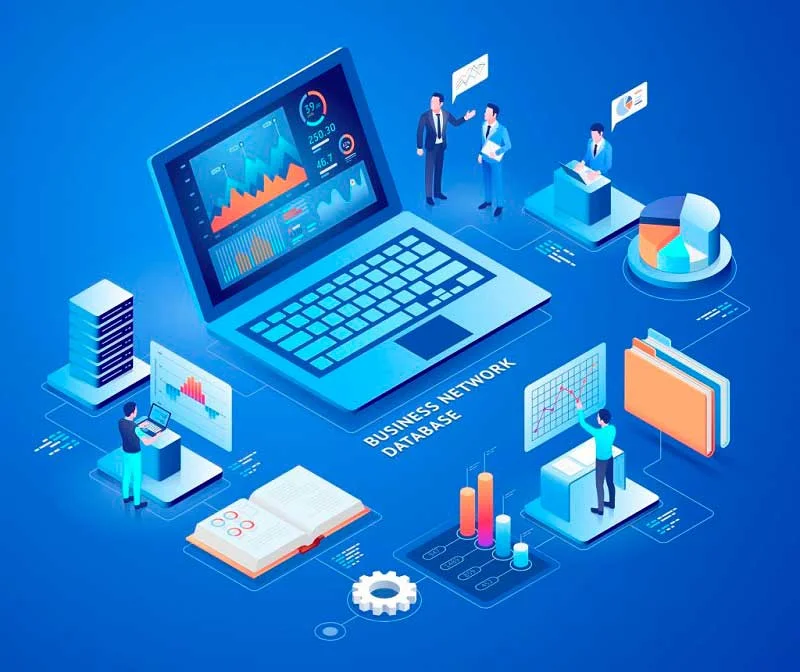Cloud computing operates on a similar principle as web-based email clients, allowing users to access all of the features and files of the system without having to keep the bulk of that system on their own computers. cloud computing services In fact, most people already use a variety of cloud computing services without even realising it. Gmail, Google Drive, TurboTax, and even Facebook and Instagram are all cloud-based applications.
Private clouds provide a higher level of security through company firewalls and internal hosting to ensure that an organization’s sensitive data is not accessible to third-party providers. The drawback of private cloud, however, is that the organization becomes responsible for all the management and maintenance of the data centers, which can prove to be quite resource-intensive. With public cloud computing, businesses eliminate the direct cost of purchasing, maintaining and upgrading on-premises hardware and software. They also save the time and cost of paying staff who would handle those responsibilities. Cloud computing shifts what was once a capital expense — the cost of physical IT infrastructure — to an operating expense since users pay only for what they use, typically as a subscription.
Why is cloud computing important?
It suits analyzing a potential data breach to see where the attacker is sending compromised data. Wireshark can examine wired and wireless network traffic for connection information and even what a single packet contains. Many digital forensics experts use multiple tools to handle different aspects of the forensics process, depending on the requirements of the investigation. Digital forensics tools have become vitally important to data breach investigations.
- The cloud refers to web-connected servers and software that users can access and use over the internet.
- A multicloud approach allows businesses to select the best services from different cloud vendors based on their budgets, technical requirements, geographic locations and so on.
- The capability provided to the consumer is to deploy onto the cloud infrastructure consumer-created or acquired applications created using programming languages, libraries, services, and tools supported by the provider.
- However, once you establish the onboarding process, determine IT team members responsible for implementing and adopting cloud services, and outline the benefits of cloud operations, you can get your company on track in no time.
- Virtualisation software divides one physical server into multiple, isolated virtual servers.
- Plus, the variable expenses are much lower than what you would pay to do it yourself because of the economies of scale.
- In a bustling warehouse filled with gadgets, components, and eager workers, cloud solutions can be instrumental for improving efficiency and productivity.
Different industries are expected to see dramatically different benefits from the cloud. High-tech, retail, and healthcare organizations occupy the top end of the value capture continuum. Electronics and semiconductors, consumer-packaged-goods, and media companies make up the middle. Materials, chemicals, and infrastructure organizations cluster at the lower end. Going back a few years, legacy infrastructure dominated IT-hosting budgets.
Private cloud
Today more companies are not only deploying more devices at the edge but they’re asking them to do more computing. Many analysts are predicting that most of a business’s incoming data will be gathered at the edge. Predictions foresee the edge surpassing the current data flow at the data center. Private cloud is designed for a particular organization as per their requirements. It can be hosted by the organizations operations team or by a third party service provider. The pay-as-you-go system also applies to the data storage space needed to service your stakeholders and clients, which means that you’ll get exactly as much space as you need, and not be charged for any space that you don’t.

While you don’t want to host data that is subject to regulation in the cloud, you want to access it as if it was. At the same time, you want to deploy your CRM in the cloud, through which you can access data stored in your private cloud. Traditionally, security concerns have been the primary obstacle for organizations considering cloud services, particularly public cloud services. In response to demand, however, the security offered by cloud service providers is steadily outstripping on-premises security solutions. For example, healthcare companies are using the cloud to develop more personalized treatments for patients.
Multi-cloud and hybrid cloud will help alleviate downtime worries
Specifically, and ideally, a hybrid cloud connects an organization’s private cloud services and public clouds into a single, flexible infrastructure for running the organization’s applications and workloads. Cloud computing poses privacy concerns because the service provider can access the data that is in the cloud at any time. It could accidentally or deliberately alter or delete information.[87] Many cloud providers can share information with third parties if necessary for purposes of law and order without a warrant. That is permitted in their privacy policies, which users must agree to before they start using cloud services. Information technology (IT) infrastructure is what makes it possible for an organization to build and run the technologies that they rely on. It is a set of hardware, software, networks, and processes that support business requirements.

Today, PaaS is often built around containers, a virtualized compute model one step removed from virtual servers. Containers virtualize the operating system, enabling developers to package the application with only the operating system services it needs to run on any platform, without modification and without need for middleware. Recent technological advances demonstrate that today’s hardware isn’t just capable of speed but that it can additionally support confidential computing constructs. Equally advanced is the software platform intentionally tuned for the edge environment, offering aligned execution, isolation, delivery, storage and more.
Flexibility
Not only can this help propel companies through the current crisis, it can lead to increased, sustainable growth. According to our Future Systems research, companies that are more strategic in their approach to technology are doing better financially. They’re achieving more than twice the average revenue growth of companies slow to implement and use their tech. Internet Access
With a public cloud environment, users “plug into” the data and applications via an internet connection giving anytime, anywhere access. Let’s say you work in an industry that must adhere to very strict data privacy regulations.
Private clouds are reserved for specific clientele, usually one business or organization. Because it gives them flexibility and scalability, organizations of every size and in every industry already use cloud computing. Companies use it for routine tasks like data protection, software development, data analytics, disaster recovery, virtual desktops, server virtualization, and customer-facing applications. Public cloud refers to computing services offered by third-party providers over the internet. Unlike private cloud, the services on public cloud are available to anyone who wants to use or purchase them. These services could be free or sold on-demand, where users only have to pay per usage for the CPU cycles, storage, or bandwidth they consume.
Benefits of the Cloud
Software as a Service (SaaS)
SaaS is the most commonly used cloud application service and is becoming a dominant way for organizations to access software applications. Cloud computing is one of the main technologies driving the way we work and play. In addition to helping companies reduce IT headaches, the cloud also helps boost productivity and boosts your security. It also helps small businesses leverage the latest in computing technology for a much lower cost. Here’s what you need to know about why the cloud matters and how it can help your business. If companies pursue the cloud’s vast potential in the right ways, they will realize huge value.

PaaS removes the need for you to manage underlying infrastructure (usually hardware and operating systems), and allows you to focus on the deployment and management of your applications. This helps you be more efficient as you don’t need to worry about resource procurement, capacity planning, software maintenance, patching, or any of the other undifferentiated heavy lifting involved in running your application. Edge computing is evolving from the simple sensors gathering data at the edge of the computing network to more sophisticated and interactive devices. These devices can gather data and interact in real time with customers, business partners and with sophisticated data gathering. The security protections offered in early edge computing devices tended to be simplistic and offered no protection beyond password or networking security.
How do you control cloud costs?
Such interdepartmental, integrated business planning and collaboration is the backbone of successful business operations. For instance, alignment of data and processes between https://www.globalcloudteam.com/ HR and finance teams is crucial to accurate reporting and employee management. Cloud computing has become an increasingly attractive option for growing businesses.